Coming into the 2020 U.S. Open amid a summer of social unrest, widespread protests throughout the United States and the COVID-19 pandemic highlighting the racial disparities of the healthcare system, Naomi Osaka took advantage of the platform she had, establishing herself as an athlete devoted to fighting for social justice in the sports world. Seven wins away from her third career Grand Slam title, Osaka brought seven custom-made masks to the bubble in Flushing, N.Y., each listing the name of a victim of racial injustice and police brutality. With these masks, Osaka made her title run about something bigger than tennis: she took advantage of the moment and her platform to raise awareness about the cruel realities of racism in America. Osaka told reporters that she viewed herself as “a vessel … in order to spread awareness.” Osaka, a young Black woman in a sport largely dominated by white athletes, announced herself as a champion on and off the court, proving herself to be the face of a new generation of athletes fighting for social justice.
Osaka powerfully grabbed the attention of the sports world when she showed up to her first match with a mask donning the name of Breonna Taylor, a 26-year-old Black woman shot and killed in her home by the Louisville Police Department while sleeping in late March 2020. After fending off a challenge from opponent Misaki Doi in the first round, Osaka was asked by reporters about her mask and if she had plans to feature more masks in the future. Osaka replied that she had seven masks, noting that “It’s quite sad that seven masks isn’t enough for the amount of names [of victims of racial injustice].” Osaka remarked that she hoped she’d advance to the finals so that everyone could see all of them. Quickly, proponents of racial justice movements found themselves rallying behind Osaka, her fight to a title paralleling that of activists taking to the streets. For tennis fans around the world, Naomi Osaka began to represent the face of racial justice, a belief that incited both contempt and support. Osaka’s goal to spread awareness and spark difficult conversations had clearly been achieved as the tennis world erupted into discussions about racial justice.
Breonna Taylor: Osaka ground out a tough, three-set win against an upset-minded Misaki Doi. Elijah McClain: Osaka cruised through her match against Camila Giorgi with ease. Ahmaud Arbery: Osaka fought through three sets to beat Marta Kostyuk. Trayvon Martin: Osaka handled Anett Kontaveit with ease to reach the quarterfinals. George Floyd: Osaka declared victory over Shelby Rodgers in straight sets. Philando Castile: Osaka ousted Jennifer Brady to reach the championship. Tamir Rice: Osaka fought back from being down in the second set to claim a comeback victory over Victoria Azarenka and her second U.S. Open title. With each mask, each win accompanied by a statement for social justice, Osaka became the face of a movement in the sports world, putting herself at the forefront of the important intersection between sports and social justice.
Shortly after her quarterfinal win, Osaka was shown a video of messages from the families of Ahmaud Arbery and Trayvon Martin, thanking her for using the immense power of her platform to raise awareness about their children and their stories of racial injustice. These statements from parents suffering from great loss, sharing words of encouragement to continue with her fight on and off the court, prove that Osaka’s message was important and far-reaching. Seeing Osaka’s actions revered by champions of racial justice, the sports world was put on notice of Osaka’s newfound role as an important advocate for social justice. For many of us, Osaka’s fight for racial justice in her role prompts questions about what we can do to combat racism in our own lives, and challenges our preconceived notions that change cannot begin at the individual level.
Following her title victory, Osaka was asked by a reporter about the message behind her masks. Osaka quickly flipped the question around and responded, “Well, ‘what was the message that you got?’ was more the question. I feel like the point is to make people start talking.” Osaka’s driving force behind these masks was not only to raise awareness about victims of racial injustice, but to prompt difficult conversations in homes across the globe. Shortly after the tournament was over, Osaka posted on Twitter that “All the people that were telling me to ‘keep politics out of sports,’ (which it wasn’t political at all), really inspired me to win. You better believe I’m gonna try to be on your tv for as long as possible.” With seven masks, Naomi Osaka has thrust herself to the spotlight of social justice in sports, and she’s not going anyway any time soon.
Eli Kales is a freshman in the School of Foreign Service. Off-Court Voices appears online every other week.


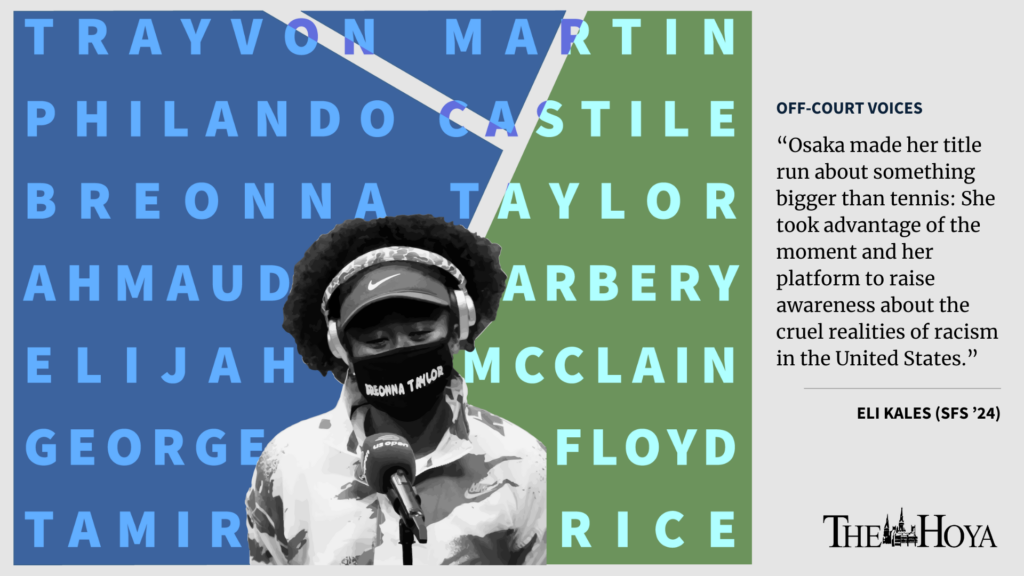






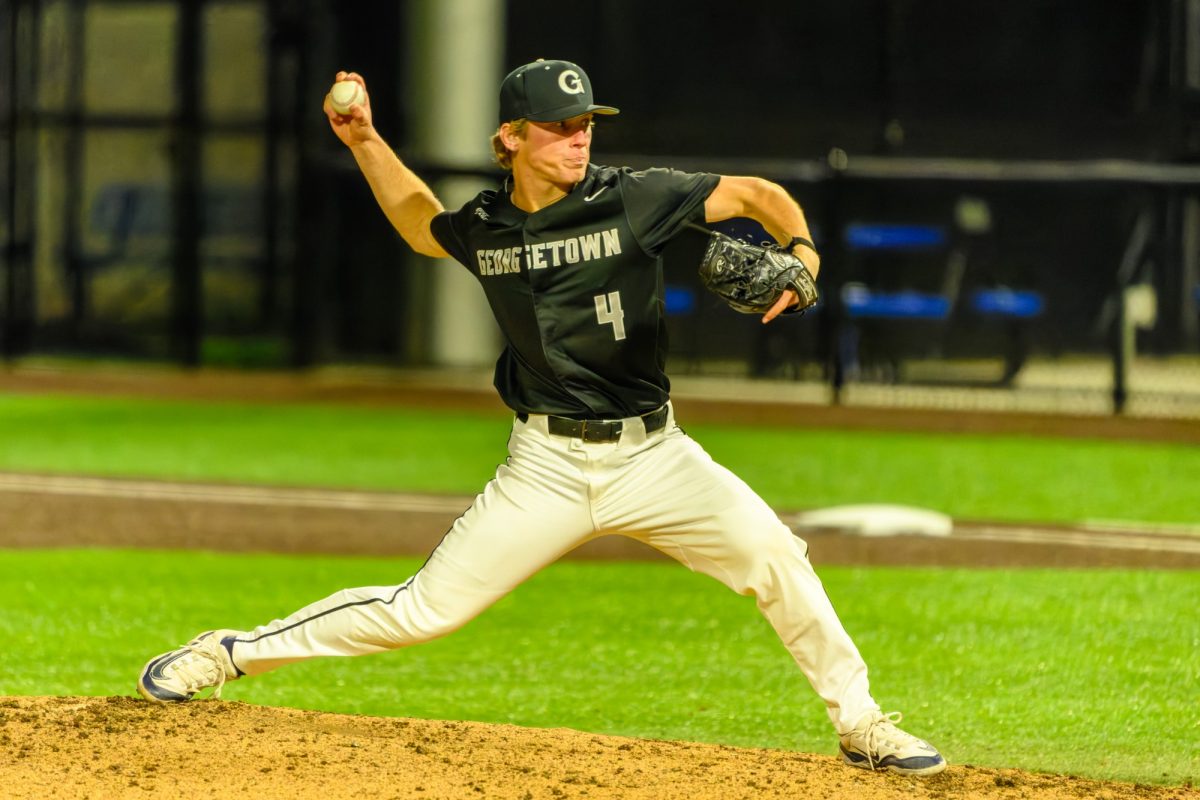







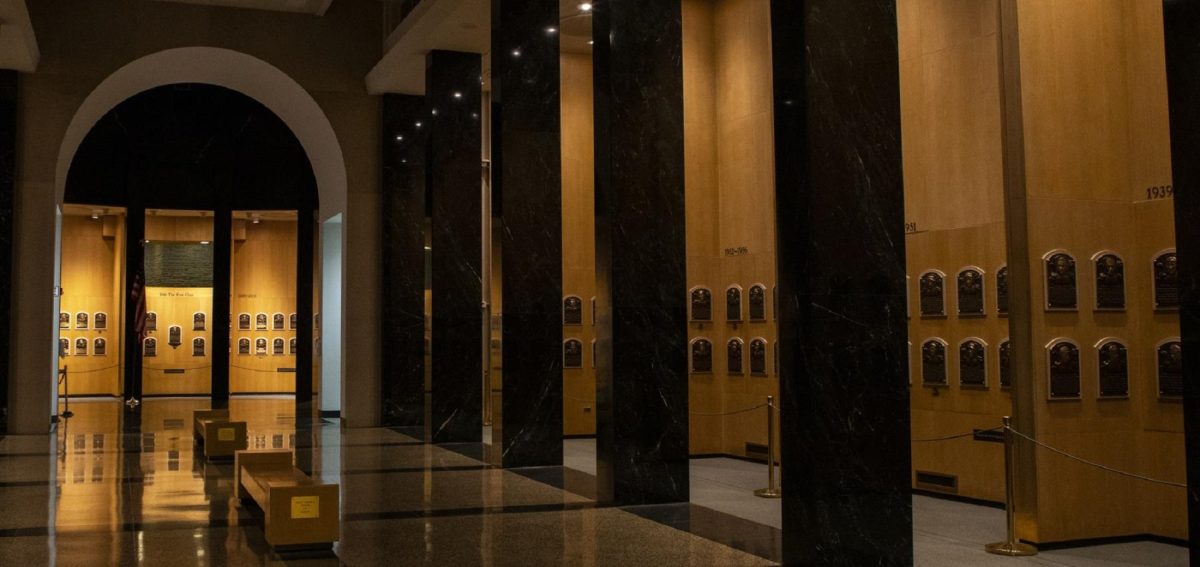
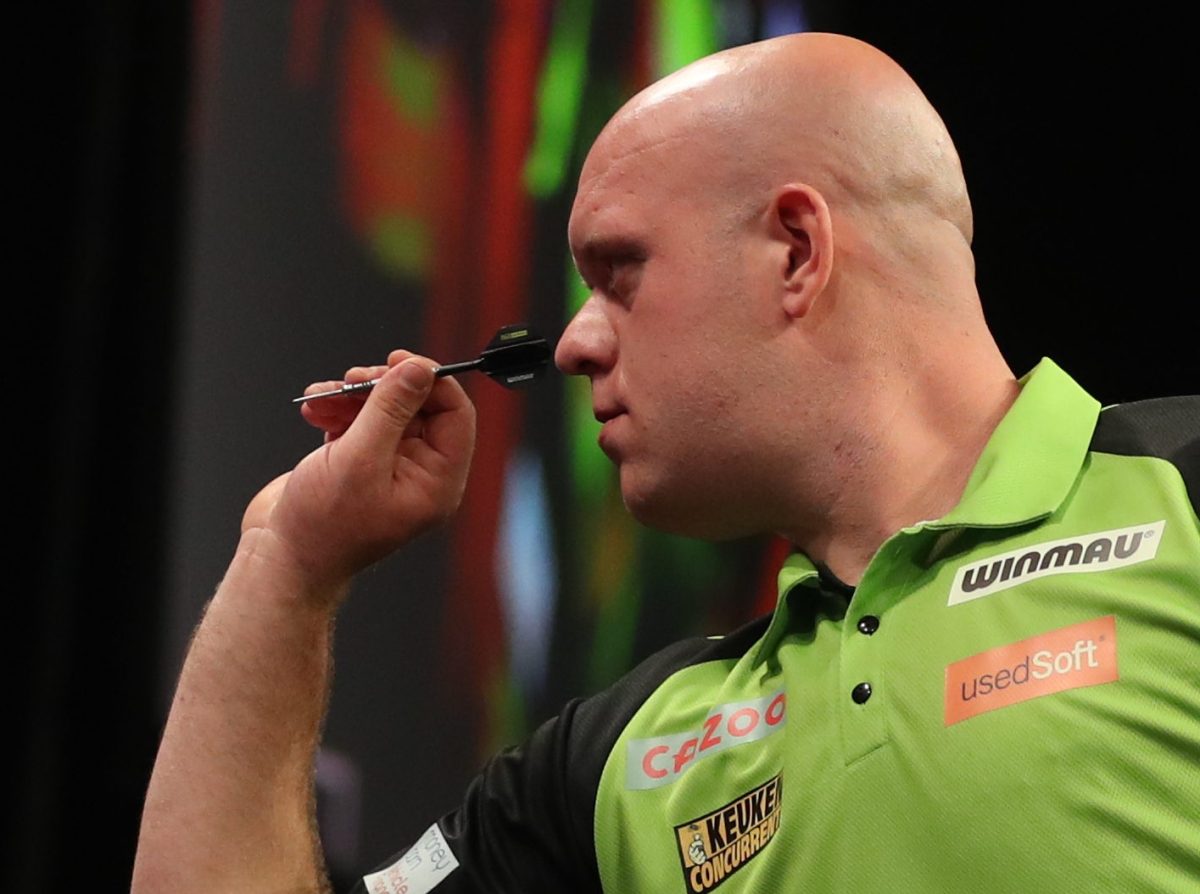
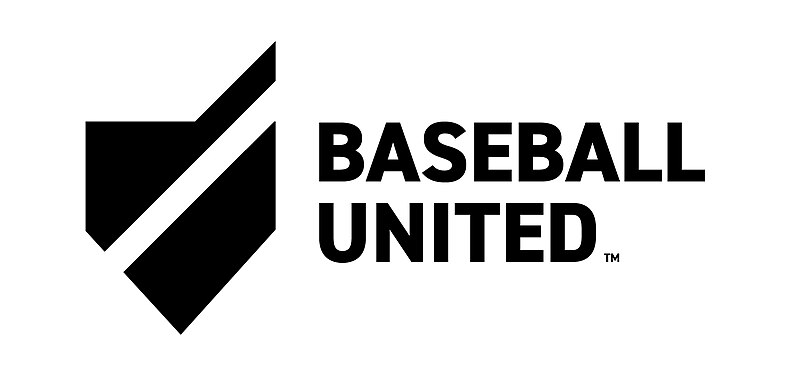
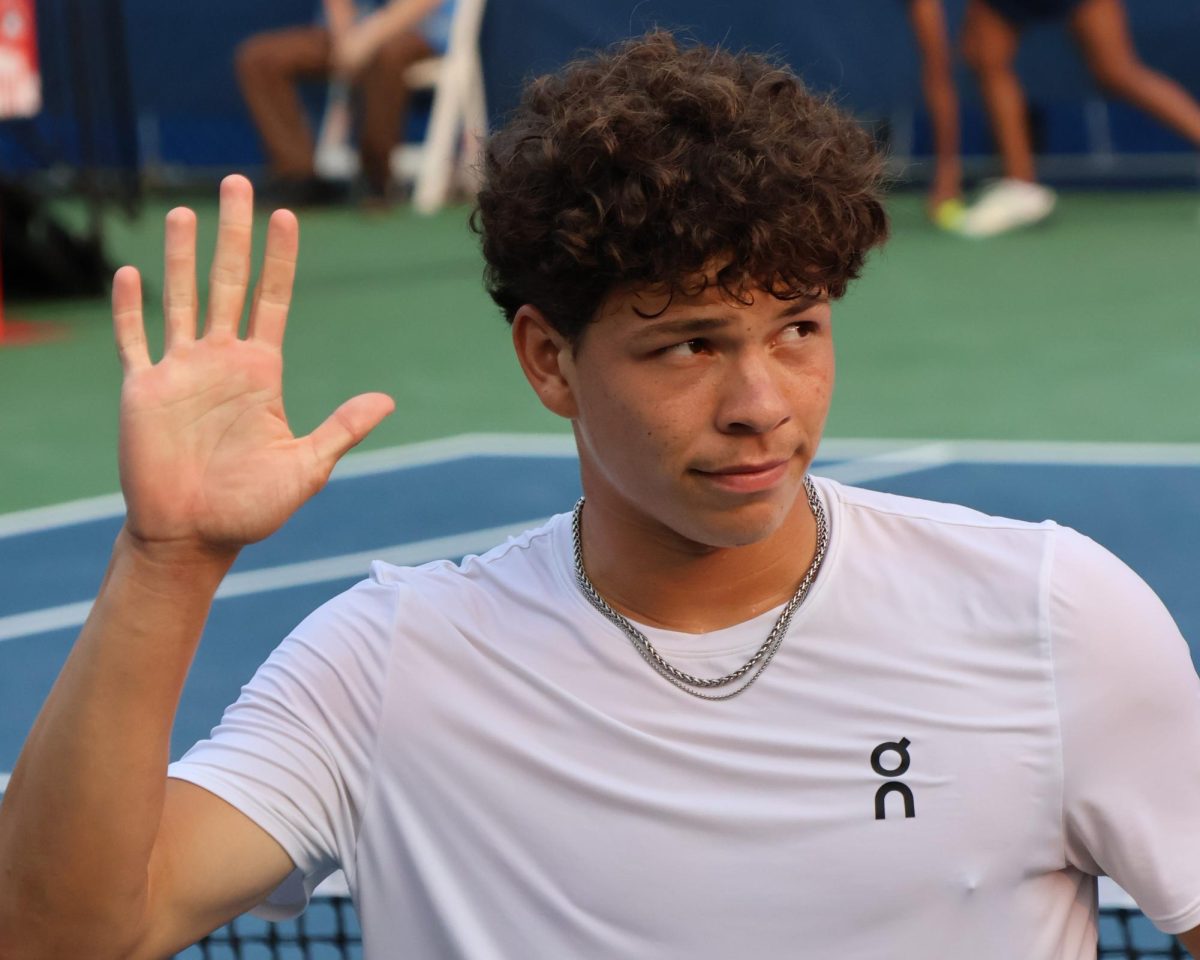

Charlie Sabgir • Sep 25, 2020 at 8:34 am
Up and coming writer!